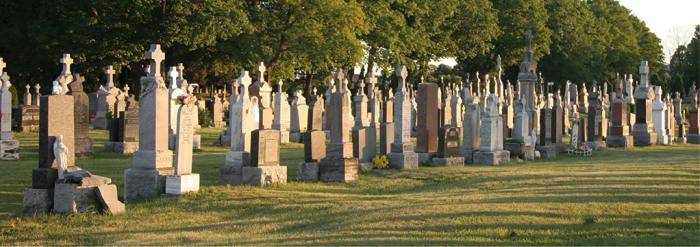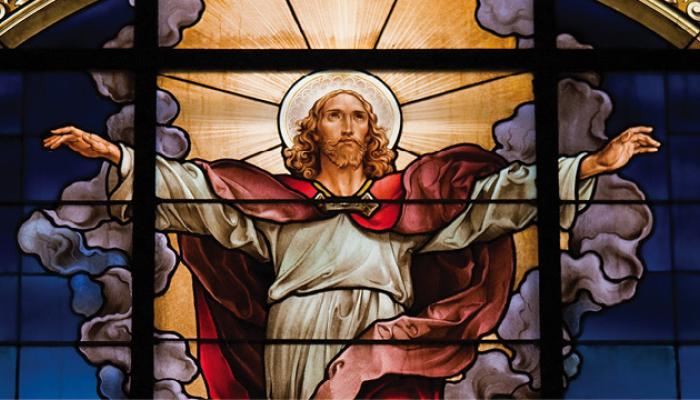
1.47 Sollte ich vor dem Fegefeuer Angst haben?
Gott setzte das Fegefeuer ein, weil er unendlich barmherzig und liebevoll ist. Er möchte, dass alle gerettet werden und bei ihm im Himmel sind. Deshalb landen wir im Fegefeuer, wenn unsere Seele zum Zeitpunkt unseres Todes noch Sünden oder Reste von Sünden trägt.
Im Fegefeuer werden wir für den Himmel gereinigt und vorbereitet, weil wir für unsere Sünden brennende Scham und Reue erleben. Fegefeuer ist vorübergehend. Menschen, die hier auf Erden durch Krieg, Schmerz, Folter oder Verfolgung leiden, werden bereits für den Himmel gereinigt (Mt 5,4-10)Mt 5,4-10: Selig die Trauernden; denn sie werden getröstet werden. Selig die Sanftmütigen; denn sie werden das Land erben. Selig, die hungern und dürsten nach der Gerechtigkeit; denn sie werden gesättigt werden. Selig die Barmherzigen; denn sie werden Erbarmen finden. Selig, die rein sind im Herzen; denn sie werden Gott schauen. Selig, die Frieden stiften; denn sie werden Kinder Gottes genannt werden. Selig, die verfolgt werden um der Gerechtigkeit willen; denn ihnen gehört das Himmelreich.. Unsere Zeit im Fegefeuer kann auch durch Gebet, das Opfer der heiligen Messe und auf andere Weise verkürzt werden.
What is purgatory?
Purgatory, often imagined as a place, is actually a condition. Someone who dies in God’s grace (and therefore at peace with God and men) but who still needs purification before he can see God face to face in purgatory.
When Peter had betrayed Jesus, the Lord turned around and looked at Peter: “And Peter went out and wept bitterly”—a feeling like being in purgatory. Just such a purgatory probably awaits most of us at the moment of our death: the Lord looks at us full of love—and we experience burning shame and painful remorse over our wicked or “merely” unloving behavior. Only after this purifying pain will we be capable of meeting his loving gaze in untroubled heavenly joy. [Youcat 159]
How can we help the souls being purified in purgatory?
Because of the communion of saints, the faithful who are still pilgrims on earth are able to help the souls in purgatory by offering prayers in suffrage for them, especially the Eucharistic sacrifice. They also help them by almsgiving, indulgences, and works of penance. [CCCC 211]
In what way does the Church participate in the eucharistic sacrifice?
In the Eucharist the sacrifice of Christ becomes also the sacrifice of the members of his Body. The lives of the faithful, their praise, their suffering, their prayers, their work, are united to those of Christ. In as much as it is a sacrifice, the Eucharist is likewise offered for all the faithful, living and dead, in reparation for the sins of all and to obtain spiritual and temporal benefits from God. The Church in heaven is also united to the offering of Christ. [CCCC 281]
Can we help the departed who are in the condition of purgatory?
Yes, since all those who are baptized into Christ form one communion and are united with one another, the living can also help the souls of the faithful departed in purgatory.
When a man is dead, he can do nothing more for himself. The time of active probation is past. But we can do something for the faithful departed in purgatory. Our love extends into the afterlife. Through our fasting, prayers, and good works, but especially through the celebration of Holy Eucharist, we can obtain grace for the departed. [Youcat 160]
You may cleanse me in this life, and make me such, that I may after that stand in no need of the cleansing fire, for those 'who are to be saved, yet so as by fire' (1 Cor. 3:15). And because it is said, 'he shall be saved,' that fire is thought lightly of. For all that, though we should be 'saved by fire', yet will that fire be more grievous than anything man can suffer in this life whatsoever. [St. Augustine, Expositions on the psalms, 37:3 (ML 36,397)]





